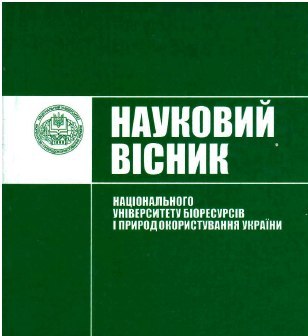State terminological standards of Ukraine in the scientific discourse: current issues
DOI:
https://doi.org/10.31548/philolog0(263).2017.056%20-%2065Abstract
National and international standards influence on functioning practically all spheres of activity of the state, because long ago the mankind has understood advantages of purposeful restriction – standardization, which provides uniformity in coding, information transfer and convenience of its decoding.
The leading Ukrainian scientists, for example, L. Bosak, M. Ginzburg, K. Gorodenskaya, N. Denisyuk, A. Dobrovolsky, S. Ermolenko, N. Klimenko, S. Kovalenko, I. Kochan, M. Kochergan, S. Litvinskaya, V. Morgunyuk, T. Panko, L. Pshenichnaya, B. Rytsar, R. Rozhankivsky, L. Simonenko, S. Harchenko, M. Hoynatsky, V. Chinkov, etc. focus society’s attention on current issues during creation, functioning of standards.
The purpose of this research is to analyse features of functioning of national terminological standards and to establish the existing problems of their functioning (on the example of terminological standards of the Information and Documentation series).
The following problems are highlighted:
Problem of harmonization of national standards with international ones.
National standards of the Information and Documentation series are mainly based on the international standards (ISO) of this series; they have different degrees of conformity to international ones: identical (DSTU ISO 30300: 2015) modified (DSTU 4032-2001, DSTU 4419-2005, DSTU 4309: 2004 (ISO 2384: 1977); not equivalent DSTU 2398-94 (ISO 5127-6: 1983).
Problem of inadequate attention to standards of this series from the state.
Activity in the sphere of standardization in Ukraine was carried out on the state program of standardization, last of which was covered 2006-2010. Now they are carried out on the basis of annual programs of works on national standardization. Since 2011 only one terminological standard - DSTU 7448: 2013 has been issued. Also preparation of the draft of the terminological standard isn't planned for 2017 for TK144.
Problem of obsolescence of national standards.
From the national terminological standards of the Information and Documentation series that exist today only three are developed, approved and put into operation after 2009 and it’s consequently, the principles of a term creation are considered in them which are regulated by State Standard 3966:2009. Other standards of this series demand updating.
Problem of lack of language expertise of national standards.
Unfortunately, the existing standards contain language errors, gaps. The attentive relation to language registration has to become one of obligatory requirements to the normative document for the approval. In Ukraine a special series of standards - terminological work functions, terminological standards of all other series have to be based on it to provide Ukranian-language high-quality scientific communication. State standards of the Terminological Work series are harmonized with the corresponding international standards.
Problem of limited access for the existing national standards.
State policy has to promote expansion of opportunities of obtaining information for all social groups, including also physically disabled people, for creation of information filling, qualitative content.
The considered important issues demand a complex study by both theorists and research practitioners to define the priority of directions of development of standards of this series conjointly. The state has to play the leading role in the solution of problematic aspects of functioning of terminological standards of the Information and Documentation series. Also the personal responsibility of developers of standards is important for conformity of the accepted terms to all requirements, which are imposed for terms, in particular observance of requirements of State Standards 3966: 2009.
References
DSTU 1.7-2001.(2001). Pravyla I metody pryiniattia ta zastosuvannia mizhnarodnykh I rehionalnykh standartiv [The rules and methods of accepting and implementation of international and regional standards]. Valid from 2001-07-01. – Kyiv: Derzhstandart Ukrainy, 2001, 28.
DSTU 3966:2009. (2009). Terminology work. Zasady I pravyla rozroblennia standartiv na terminy ta vyznachennia poniat [Principles and rules for the development of standards for terms and definitions]. For replacement of DSTU 3966-2000. – Valid from 01.04.2010. – Kyiv: Derzhspozhyvstandart, 35.
Polozhennia pro tekhnichnyi komitet standartyzatsii naukovo-technichnoi terminilohii [Regulations on the Technical Committee standardization of Scientific and Technical Terminology]. – Access mode: : http://lp.edu.ua/tc.terminology/TK_structure.htm#Sect5
About standardization: Laws of Ukraine dated from 05.06.2014 № 1315 - VII [Electronic resource]. Access mode: http://lp.edu.ua/tc.terminology/TK_structure.htm#Sect5
The program of works on national standardization in 2017 [Electronic resource] ‒ http://uas.org.ua/ua/services/standartizatsiya/progra.
Rytsar B., Roman Mysak, Olha Matseiovska (2012). Technichnomu komitetovi standartuzatsii naukovo-technichnoi terminolohii – 20 rokiv: diialnist u faktakh ta tsufrakh. Visnyk Natsionalnoho Un-tu “Lvivska politechnika” : Seriia “Problemu uktainskoi terminolohii”. № 733, 239-254.
Ukrainske Ahenstvo zi standartyzatsii. Derzhavne pidpruiemstvo “Ukrainskyi naukovo-doslidnyi I navchalnyi tsentr problem standartuzatsii, sertyfikatsii ta yakosti”[ Ukrainian Agency for Standardization. State Enterprise "Ukrainian Research and Training Center of Standardization, Certification and Quality] [Tittle screen] ‒ http://uas.org.ua/ua/zagalni-vidomosti-pro-dp-ukrndnts/
Downloads
Published
Issue
Section
License
Relationship between right holders and users shall be governed by the terms of the license Creative Commons Attribution – non-commercial – Distribution On Same Conditions 4.0 international (CC BY-NC-SA 4.0):https://creativecommons.org/licenses/by-nc-sa/4.0/deed.uk
Authors who publish with this journal agree to the following terms:
- Authors retain copyright and grant the journal right of first publication with the work simultaneously licensed under a Creative Commons Attribution License that allows others to share the work with an acknowledgement of the work's authorship and initial publication in this journal.
- Authors are able to enter into separate, additional contractual arrangements for the non-exclusive distribution of the journal's published version of the work (e.g., post it to an institutional repository or publish it in a book), with an acknowledgement of its initial publication in this journal.
- Authors are permitted and encouraged to post their work online (e.g., in institutional repositories or on their website) prior to and during the submission process, as it can lead to productive exchanges, as well as earlier and greater citation of published work (See The Effect of Open Access).

